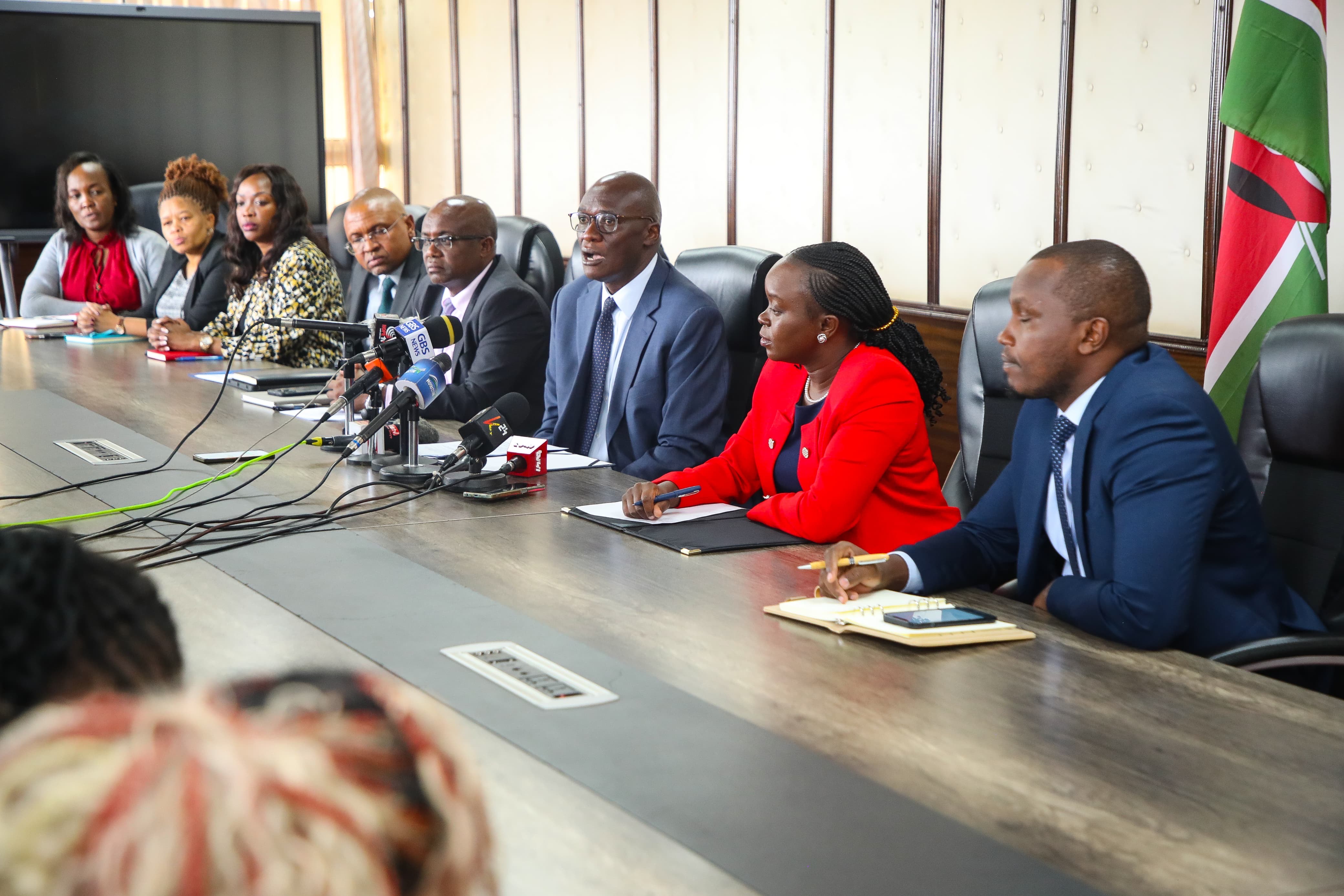Ministry of Health Accelerates Reforms to Achieve Universal Health Coverage
Nairobi, Kenya - 15th January 2025
The Ministry of Health is committed to delivering Universal Health Coverage (UHC), a core priority of the Kenya Kwanza administration. This initiative, which aligns with Vision 2030, the Kenya Health Policy Framework 2014–2030, and the Sustainable Development Goals (SDGs), seeks to ensure equitable and quality healthcare for all Kenyans.
Speaking during a media briefing on UHC progress on Wednesday, January 15, 2025, Cabinet Secretary for Health Dr. Deborah Barasa emphasized the importance of reforms in healthcare financing, service delivery, and human resource development, noting that these efforts are critical to achieving UHC and ensuring no Kenyan is left behind.
Dr. Barasa, who was accompanied by Director General for Health Dr. Patrick Amoth, and the CEOs of the Social Health Authority, KEMSA, and the Digital Health Agency, reported significant milestones in UHC progress. As of January 13, 2025, over 17.8 million Kenyans have registered with the Social Health Authority (SHA), including 13.2 million new members and 4.6 million individuals transitioned from the National Health Insurance Fund (NHIF).
She further noted that vaccines received in December 2024, such as HPV, malaria, rotavirus, and BCG, are enhancing immunization coverage nationwide.
The Ministry continues to advance its Digital Health Superhighway through the Health Information Exchange system, aimed at improving data accessibility and decision-making.
To date, over 8,500 health facilities have enrolled in the Health Provider Portal, with 87 percent successfully logged in. This digital transformation complements ongoing efforts to improve service delivery, including an increase in fully immunized child coverage to 93 percent as of October 2024, monthly outpatient visits averaging 4.6 million, and inpatient admissions totaling 176,385 by December 2024.
Dr. Barasa also highlighted the progress achieved under the National Equipment Service Program (NESP), which ensures access to critical medical services such as radiology, ICU care, and surgery under the Fee-for-Service model.
Forty-five counties have signed Implementation Partner Agreements (IPAs), with 35 counties placing requisitions for 594 health facilities. The Ministry continues to address challenges in the healthcare system while strengthening service delivery.
Dr. Barasa urged Kenyans to register with SHA and support the government’s efforts to achieve equitable and affordable healthcare for all.





